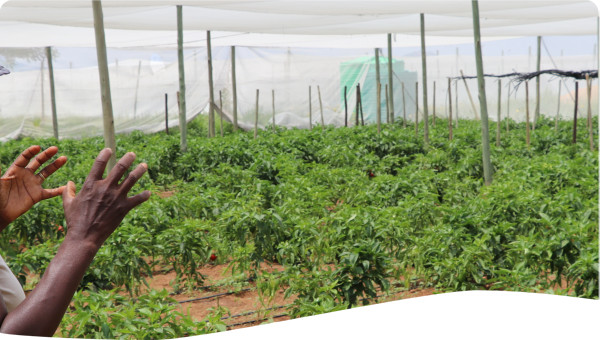In Niger, the women of the CERNAFA group have built a successful dry-season market-gardening enterprise, growing onions, lettuce, cabbage, and other vegetables without chemical fertilisers. Supported by Association Kandili, they use an innovative “onion contribution” system to save and reinvest collectively. Their work improves household nutrition, income, and drought resilience while demonstrating women’s leadership in sustainable, community-based agriculture.
Niger’s arid climate poses severe challenges for food security, biodiversity, and livelihoods. In this context, Association Kandili highlights and supports women-led innovations through podcasts and outreach on food and climate initiatives in West Africa. One of its featured examples is the CERNAFA women’s group in Djoga, whose market-gardening activities illustrate how women’s solidarity and ingenuity can transform livelihoods in extremely dry environments.
Founded in 2002, CERNAFA was created to provide women with income-earning opportunities during the dry season. At a time when farming options were limited and droughts increasingly frequent, the women organised collectively to access land and develop irrigated gardens. Through a creative approach known as “onion contributions”, each woman contributed part of her harvest to gain membership and secure access to communal plots.
The group began with a single fenced and well-equipped site covering about 350 m² per woman. Over twelve years, its success led to expansion: by 2014, membership reached 247 women cultivating across four sites totalling about 19 hectares. Their crops—lettuce, onions, cabbages, and other vegetables—serve both household consumption and local markets.
The initiative demonstrates how women’s groups can strengthen community resilience, improve water resource management, and integrate biodiversity into agricultural practices. By avoiding chemical fertilisers and pesticides, CERNAFA promotes agroecology and soil health, even under harsh climatic conditions. Association Kandili documents and amplifies such experiences to inspire similar women-led responses to drought, food insecurity, and land degradation across Niger.
1. Establishing market gardens
CERNAFA secured land through its onion-membership strategy and created fenced, irrigated plots. Each member cultivates about 350 m², using wells for water during the dry season. Crops include onions, lettuce, cabbages, and other vegetables grown without chemical inputs, combining food production with environmental care.
2. Expanding production capacity
As success grew, CERNAFA enlarged its sites to four locations (19 ha) and reached 247 women members. The group collectively manages water resources, site maintenance, and crop planning, ensuring equitable access and sustainable use of land.
3. Introducing the “onion contribution” savings system
At every harvest, each woman deposits 10 % of her onion production as savings. During harvest time a bag is worth FCFA 10 000 (EUR 15.25). The group stores the onions for several months and resells them when prices rise to about FCFA 40 000 (EUR 60.99).
4. Collective marketing and reinvestment
Women responsible for marketing sell onions at the Torodi market or directly to buyers. In 2014, the group stored around 100 bags, lost 20 %, and sold 80 bags—generating substantial revenue. Profits are reinvested to:
- Purchase agricultural equipment and seeds,
- Maintain wells and fencing,
- Build an onion-storage facility, and
- Save funds to acquire new plots for expansion.
5. Strengthening community leadership
Through this system, women have demonstrated strong organisational and financial management skills. The group reinvests collectively rather than individually, ensuring long-term sustainability. Association Kandili amplifies their story to inspire replication and support additional training and exchanges with neighbouring villages.
6. Addressing challenges
- Storage capacity: Losses of 10–90 % occur due to inadequate facilities; improved storage technologies are needed.
- Market competition: Local producers struggle against large international onion suppliers from countries such as the Netherlands and Burkina Faso.
- Security risks: Attacks in some regions reduce output.
- Knowledge sharing: Further training and cross-village collaboration are essential to enhance resilience and competitiveness.
1. Economic empowerment
CERNAFA provides sustainable income during the dry season. Profits from onion sales allow women to reinvest in their enterprises, buy seeds, expand landholdings, and maintain infrastructure. The initiative has become a model for collective female entrepreneurship in arid regions.
2. Improved food and nutrition security
Diversified vegetable production—onion, cabbage, lettuce—has enhanced household diets, particularly for children, and reduced reliance on imported food.
3. Community resilience and resource management
Women’s group organisation ensures efficient water use through wells and responsible irrigation practices. Their avoidance of chemicals protects soils and biodiversity, strengthening ecosystem resilience under recurrent drought.
4. Social solidarity and collective savings
The “onion contribution” system reinforces mutual trust and long-term cooperation. Collective savings create a financial safety net that benefits all members rather than individuals alone.
5. Expansion and visibility
From one small garden to four sites covering 19 ha, the group’s growth illustrates the scalability of women-led agroecology. Association Kandili’s media work gives visibility to these achievements, positioning CERNAFA as a local success story in climate adaptation.
6. Remaining challenges
Limited storage capacity and exposure to market volatility continue to affect profits. Security risks restrict expansion in certain zones, and access to training remains uneven. Nevertheless, the initiative’s resilience and reinvestment model offer strong potential for replication across Niger’s drylands.
Overall impact
Through self-organisation and innovation, the CERNAFA women have transformed dry-season market gardening into a sustainable livelihood strategy. Their approach links income generation, environmental stewardship, and women’s empowerment, contributing to local drought resilience and community wellbeing.
Collective savings models like the “onion contribution” strengthen women’s financial independence and ensure sustainability of market-gardening enterprises.
Agroecological dry-season gardening demonstrates that women’s traditional knowledge can enhance food security and biodiversity in arid conditions.
Reinvestment of profits into shared infrastructure—wells, fencing, storage—builds long-term community resilience.
Training and exchange with neighbouring villages are key for scaling similar women-led initiatives across Niger.
Media storytelling, as done by Association Kandili, amplifies women’s innovations and attracts broader support for gender-responsive climate action.

